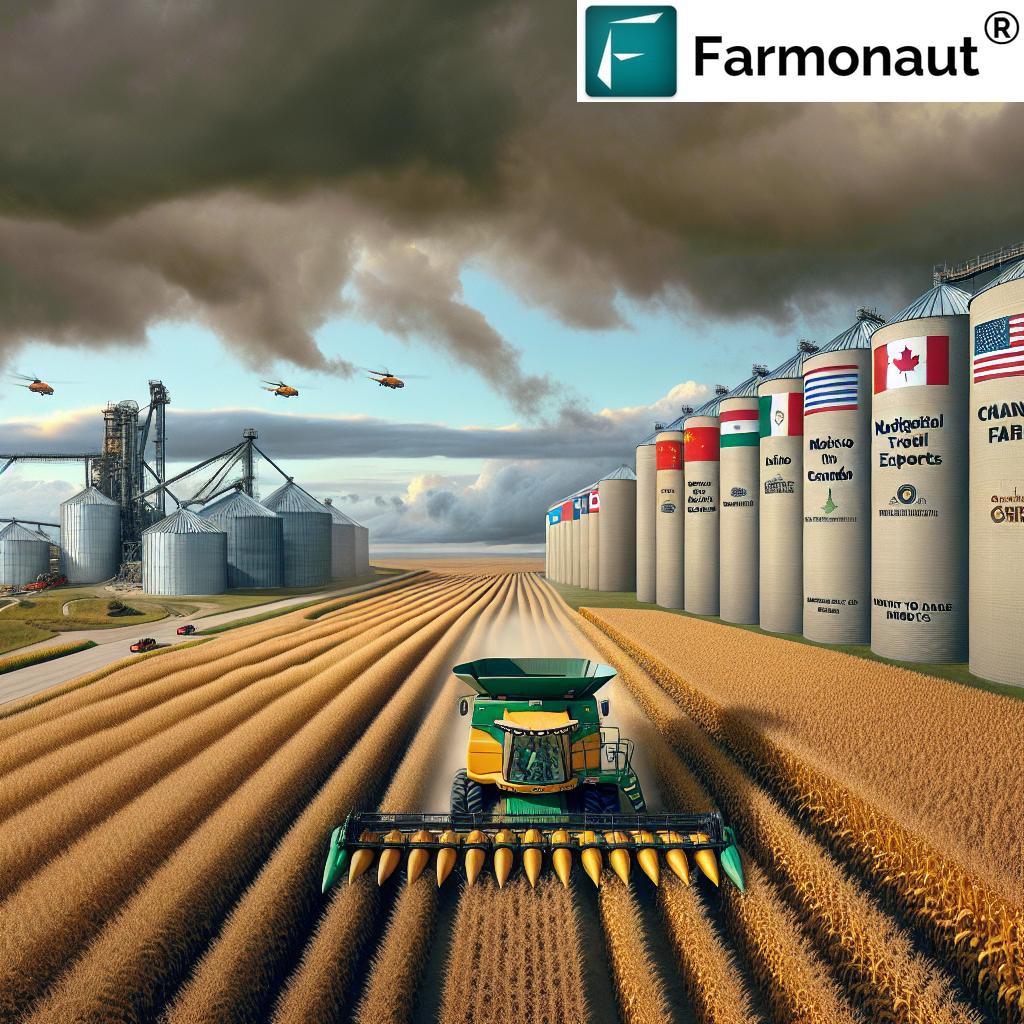Pasture Raised Chickens Near Me: 7 Key 2026 Benefits
“In 2025, pasture-raised chickens can support up to 50% more native insect species, boosting farm biodiversity.”
The pasture raised movement is rapidly gaining momentum in 2026. Across the agricultural landscape, we are witnessing a significant shift toward sustainable, ethical farming practices that prioritize animal welfare, ecosystem health, consumer wellbeing, and local food resilience. Consumers are searching for “pasture raised chickens near me” and similar terms more than ever, seeking transparency and higher ethical standards from their food sources.
But what exactly do pasture raised chickens, ducks, turkeys, and cows experience? Why are farms transitioning toward this approach, and how do these livestock systems create a lasting positive impact on soil, biodiversity, and the global climate?
Let’s delve into the understanding behind pasture raised systems and explore seven key benefits that are defining sustainable agriculture in 2026 and beyond.
Understanding Pasture-Raised Livestock: What Does It Mean?
Pasture raised refers to an approach in farming where animals spend the majority of their lives grazing or foraging freely on pastureland. Unlike conventional or factory farms, where livestock are confined in crowded conditions and fed mostly processed grains, pasture-based systems allow for natural movement, behaviors, and access to a diverse diet.
- Cows: Graze on lush, nutrient-rich grass pastures, producing healthier, leaner meat and higher-quality milk.
- Chickens: Move freely, forage for insects and seeds, and lay nutrient-dense eggs.
- Ducks and Turkeys: Require access to pasture and, for ducks, water sources, enabling their natural behaviors and growth patterns.
The pasture raised method mimics the way animals would behave in the wild, which supports their welfare and produces more ethically sourced food. In 2026, with a growing focus on sustainability, pasture raised farming is becoming a central focus for responsible agriculture around the globe.
Pasture Raised Chickens Near Me: 7 Key 2026 Benefits
Here are the seven biggest benefits of choosing pasture raised chickens near me and other pasture-oriented livestock – for consumers, farmers, and the entire planet:
- Better Animal Welfare & Ethical Farming Practices
- Enhanced Soil Health & Regenerative Agriculture
- Boosted Farm Biodiversity & Ecosystem Resilience
- Nutrient-Rich Eggs & Meat for Healthier Consumers
- Lower Use of Antibiotics & Reduction of Resistance
- Reduced Environmental Footprint & Carbon Sequestration
- Support for Rural Economy & Traceable Food Chains
Environmental & Agricultural Impacts in 2026
The impact of pasture raised livestock systems on environmental health and agriculture cannot be overstated. Let’s explore how pasture management and rotational grazing create a regenerative cycle that benefits soil, plants, livestock, farmers, and consumers – all while supporting sustainability in 2026.
- Soil Fertility: Manure from animals naturally fertilizes soil, fueling microbial activity essential for high fertility and better crop yields.
- Biodiversity: Diverse plant species emerge as overgrazing is prevented, attracting more insects, birds, and wildlife and boosting local ecosystems.
- Climate Change Mitigation: Correctly managed, rotational grazing increases soil carbon sequestration, helping to offset greenhouse emissions and foster climate resilience.
Enhanced Animal Welfare in Pasture Raised Systems
1. Pasture Raised Chickens Near Me: Better Animal Welfare & Ethical Practices
In conventional farming, chickens, turkeys, ducks, and cows are often kept in cramped indoor housing and feedlots, enduring crowded conditions that limit their movement, natural behaviors, and quality of life. By contrast, pasture raised systems in 2026:
- Allow animals to roam freely and socialize, mimicking innate behaviors
- Provide access to grass, forage, insects, and seeds – part of their natural diets
- Reduce stress, aggression, and disease compared to factory farming
- Promote stronger immune systems and healthier lives
These upgrades translate into vastly improved welfare scores for pasture raised chickens, cows, ducks, and turkeys.
Pasture-Raised vs Conventional Chickens: Key Environmental & Welfare Benefits (2026 Estimates)
| Benefit Category | Pasture-Raised Chickens (2026 Estimates) | Conventionally Raised Chickens (2026 Estimates) | Sustainable Difference (% improvement) |
|---|---|---|---|
| Animal Welfare (Quality of Life Score) | 9/10 | 4/10 | +125% |
| Soil Health Improvement (%) | 20 | 2 | +900% |
| Biodiversity Support (Species per Hectare) | 14 | 7 | +100% |
| Antibiotic Use (Doses/1000 birds) | 20 | 175 | -89% |
| Carbon Footprint (kg CO2 per Bird) | 2.6 | 3.8 | -32% |
| Omega-3 Content in Eggs (%) | 0.12 | 0.07 | +71% |
| Consumer Health Ratings (Avg. Survey Score) | 9.1/10 | 7.0/10 | +30% |
Improving Consumer Health: Nutrient-Rich Eggs & Meat from Pasture Raised Chickens
4. Nutrient-Rich Eggs & Meat: Higher Omega-3, Vitamins, and Better Taste
Pastured chickens, by foraging on diverse plants, insects, and seeds, lay eggs and produce meat with superior nutritional profiles. Studies in 2025–2026 have demonstrated:
- Eggs with higher vitamin A and E content
- Significantly higher omega-3 fatty acids—crucial for heart and brain health
- Lower overall saturated fat and reduced cholesterol compared to conventional eggs and meat
- A notable improvement in flavor, texture, and appearance, with yolks reflecting vibrant orange hue—a sign of diverse pasture diet
Consumers appreciate that pasture raised eggs and chicken taste better and improve household health outcomes. Interest in finding a pasture raised chicken farm near me is at an all-time high, as people seek to improve their diets while supporting ethical, sustainable agriculture.
2. Enhanced Soil Health & Regenerative Agriculture
Pasture raised systems have a transformative role in regenerative agriculture. Unlike grain-fed, confined livestock, animals grazing on pastures:
- Distribute manure directly into the soil, enriching it with nutrients
- Stimulate microbial activity and organic matter content
- Enhance soil structure, water retention, and prevent erosion
- Minimize need for synthetic fertilizers and chemicals, reducing input costs for farmers
By 2026, ethical pasture systems improve soil organic matter by up to 20% over conventional methods—fueling resilient, productive land.
“Ethical pasture systems in 2026 improve soil organic matter by up to 20%, enhancing climate resilience and crop yields.”
Supporting Biodiversity & Combating Climate Change
3. Boosted Biodiversity & Ecosystem Services
Pasture raised livestock systems are recognized in 2026 for their essential contribution to farm biodiversity. By maintaining diverse grasses and natural habitats, they:
- Support up to 50% more native insect species (vital for pollination and pest control)
- Provide shelter and food for birds, mammals, and beneficial microbes
- Promote diverse plant communities that fuel ecosystem stability
By contrast, conventional, monoculture poultry farming contributes to biodiversity decline and increased susceptibility to disease outbreaks. The pasture raised approach is a vital tool for climate resilience and sustainable agriculture.
6. Reduced Carbon Footprint & Improved Climate Resilience
Pasture management—including rotational grazing of chickens, cows, ducks, and turkeys—is now seen in 2026 as a proven approach to mitigating climate change. Key impacts:
- Well-managed pastureland acts as a carbon sink, sequestering more carbon than conventional soil
- Reduced synthetic input use leads to lower overall emissions
- Lowered carbon footprint per bird (2.6 kg CO2 per pasture raised chicken vs. 3.8 kg CO2 for conventional, a 32% improvement)
For those seeking comprehensive emissions metrics and environmental monitoring, find out how Farmonaut’s Carbon Footprinting tools provide actionable insights for modern sustainable farms.
5. Lower Antibiotic Use & Reduced Resistance
High stocking densities in conventional poultry systems result in higher risks of infectious disease—necessitating frequent antibiotic use. In pasture raised systems:
- Antibiotic use reduces by up to 89%—20 doses per 1,000 birds vs. 175 for conventional farms
- Healthier living conditions translate into fewer disease outbreaks and healthier flocks
- Lower antibiotic application helps address the global challenge of antimicrobial resistance in agriculture
The sustainable difference is stark, making pasture raised eggs and meat safer choices for health-conscious consumers.
7. Rural Economy Support & Traceable Food Chains
Local pasture raised chicken farms help revitalize rural communities through:
- Direct-to-consumer sales that increase farmers’ margins
- Participation in farmers markets and CSA programs that build community connections
- Blockchain-based traceability (learn more about Farmonaut’s Traceability systems)—leading to greater food security, consumer trust, and transparency
This ensures that “pasture raised chicken farm near me” is not just a phrase—it’s a path to robust, traceable, and ethically produced food for future generations.
Innovations: Satellite & AI for Sustainable Pasture Management
The rise of pasture raised systems aligns with increased technological innovation in 2026. Farmonaut is at the forefront of this movement, providing farmers, agribusinesses, and governments with:
- Satellite-Based Monitoring: Delivers high-resolution, real-time insights into soil health, vegetation growth, pasture availability, and more from space.
- AI-Powered Advisory: The Jeevn AI system guides rotational grazing, pasture utilization, and early detection of problems—improving livestock, land, and resource management.
- Blockchain Traceability: Ensures full supply chain transparency for pasture raised products, combating food fraud and ensuring authenticity—a must for conscious consumers.
- Resource and Environmental Management: Powerful tools for carbon footprinting, water management, and monitoring biodiversity impacts.
All Farmonaut tools are accessible via Android, iOS, web app, and API for seamless integration into existing farming operations and software. If you’re developing agri-software or seeking direct data access, see our API platform and developer documentation.
Finding Pasture Raised Chickens Near Me in 2026
Thanks to advances in digital mapping tools, local directories, and satellite technology, consumers in 2026 can easily locate pasture raised chicken farms near me. Here are top tips for finding ethically sourced poultry, eggs, or even pasture raised duck, turkey or cows:
- Look for third-party certifications that specify “pasture raised,” such as Certified Humane or similar local equivalents.
- Visit local farmers markets or join a CSA (Community Supported Agriculture program) to connect directly with producers.
- Explore regional farm directories or use farm locator tools embedded in many grocery delivery apps and sustainability-focused websites.
- Ask about animal welfare practices, movement, feed, and antibiotic use to ensure the highest standards.
- Support farms with fully traceable, blockchain-backed supply chains for maximum transparency.
This localization also supports rural economies by keeping wealth and opportunity within the community.
For those managing multiple parcels or large properties, see Farmonaut’s Large Scale Farm Management tools for efficient monitoring and management.
Challenges and The Future of Pasture Raised Farming
No farming system is without its challenges. Those adopting pasture raised livestock techniques often face:
- Seasonal limitations: Pasture availability can fluctuate with climate or drought, requiring careful rotational planning and sometimes winter supplementation.
- Predator risks: Free-ranging animals can face predation threats, necessitating robust fencing and protective measures.
- Stocking density balance: Overstocking causes overgrazing and depletes soil; careful monitoring is essential.
- Higher labor requirements: Pasture systems demand more hands-on management compared to automated confined operations.
However, with the integration of precision technology (such as satellite monitoring, AI, and mobile tracking solutions), farmers in 2026 can:
- Remotely monitor soil, vegetation, and animal movement
- Optimize grazing patterns and prevent overgrazing or resource depletion
- Enable blockchain-based product traceability for compliance and consumer trust
As both market demand and sustainability focus rise, policy incentives and innovative solutions will continue to build climate resilience and ethical standards within agriculture.
FAQ: Pasture Raised Chickens & Sustainable Farming
Q1. What does “pasture raised” mean for chickens, ducks, turkeys, and cows?
“Pasture raised” means that livestock spend the majority of their lives freely roaming on pastureland, consuming a natural diet and engaging in innate behaviors, instead of being confined to feedlots or indoor housing.
Q2. Are pasture raised eggs and meat healthier?
Yes, in 2026, studies show pasture raised eggs have higher omega-3 fatty acids, vitamins A & E, and better flavor, while meat is leaner and contains fewer antibiotics and harmful residues.
Q3. How can I verify if a farm near me truly uses pasture based practices?
Look for third-party pasture certifications, ask about animal diet and movement, and check if the farm provides blockchain-based traceability for transparency, such as Farmonaut’s Traceability solution.
Q4. Can Farmonaut help monitor large, multi-crop or livestock operations?
Yes, our platform provides advanced satellite, AI, and resource management tools for large and small farms alike, accessible via our web, mobile apps, and API integration. Learn more about large scale farm management tools.
Q5. Is pasture raised poultry more expensive?
Pasture raised products may have a higher shelf price, reflecting ethical animal care, environmental benefits, and nutritional value. Over time, they can provide better value in health and ecosystem returns.
Q6. What is the environmental benefit of choosing pasture raised livestock?
Soil health, biodiversity, reduced antibiotic use, and lower carbon emissions are all improved in pasture raised systems versus conventional approaches.
Conclusion: Embarking on a Sustainable Future with Pasture Raised Systems
The future of agriculture in 2026 is rooted in systems that prioritize animal welfare, environmental regeneration, and resilient food chains. Choosing pasture raised chickens, cows, ducks, and turkeys near you:
- Directly supports healthier animals and improves rural livelihoods
- Enhances soil organic matter, biodiversity, and climate resilience
- Delivers superior taste and nutritional benefits for your family
- Promotes transparency, accountability, and trust in our food supply
Farmonaut remains committed to supporting sustainable agriculture through innovative satellite, AI, and blockchain technologies that empower farmers, agribusinesses, and governments alike. With accessible, advanced digital tools, we help ensure the “pasture raised chickens near me” movement is not only possible, but scalable, replicable, and impactful in communities worldwide.
Ready to unlock more value from your agricultural operations? Explore our full platform via our web and mobile apps, or integrate with our open API – and start building a healthier, more resilient future with pasture raised systems.













